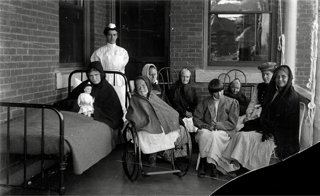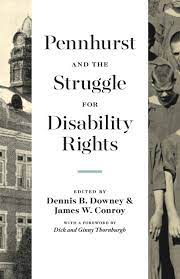
On April 15, 2021, Heinz History Center hosted a webinar designed to help genealogists, family members and others learn about researching records of formerly institutionalized Pennsylvanians. The session also provided a historical overview of the rise of institutions and the de-institutionalization movement.
The recording of the webinar, available here, covers the effort to preserve historical records from state-run institutions and the new policies that have opened them for research. The strengths and limitations of these records are discussed, as well as their potential to provide glimpses into the residents’ lives. A resource list for researchers, compiled by Heinz History Center, can be found here.
Speakers included Dennis Downey, PhD, Professor Emeritus of History at Millersville University; Nathan Stenberg, artist with disability and PhD candidate in Theatre and Performance Historiography at the University of Minnesota; Tyler Stump, acquisitions archivist at the Pennsylvania State Archives; and Sierra Green, archivist at the Heinz History Center’s Detre Library & Archives.

A recently published book about disability rights and institutional history in Pennsylvania – Pennhurst and the Struggle for Disability Rights (Penn State University Press, 2020) – is co-authored by panelist Dennis Downey. The book details the history of Pennhurst State School and Hospital, founded in 1908 in eastern Pennsylvania, as well as the advocacy and legal action that led to the closure of the institution in 1987 and helped secure the right to community-based living.
Similar to Polk State Center in Venango County, founded in 1897, the history of Pennhurst highlights the pro-eugenics ideas that set the stage for segregating people with disabilities in institutions. Originally lauded as a “model institutions,” by the 1960s both Pennhurst’s and Polk’s overcrowded conditions and treatment of residents became the subject of media scrutiny and a rallying point for de-institutionalization efforts.
Polk Center is still in operation with fewer than 200 residents, though slated to close in 2022. The Consortium collaborates with the Heinz History Center, the Pennsylvania State Archives, the Pennsylvania Department of Human Services and others to preserve the history of Polk Center through collections, artifacts and oral histories.


